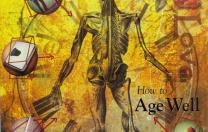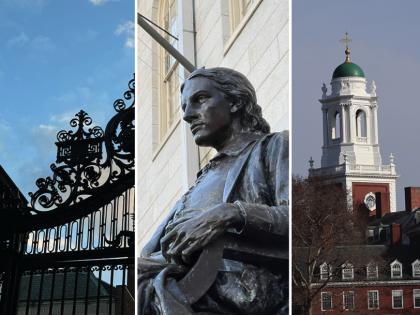The upper-middle-class alumni of select colleges might be called the "Volvocracy": those who rule from the driver's seats of their Volvos--or some other expensive import. They are that familiar group who live in leafy suburbs, listen to National Public Radio, read the New York Times, drink Bordeaux wines, buy hardcover books, and, on vacation, visit the Uffizi Gallery in Florence. But despite the Volvocrats' well-educated commonalities in taste, there are cleavages within this group--politics, for example.
Consider data from twenty-fifth reunion surveys. Go to a class reunion at Princeton or Yale, and two out of three people you meet will be Republicans, but attend a similar Harvard affair and two-thirds will be Democrats, perhaps driving Land Rovers with faded Clinton-Gore bumper stickers, says George Vaillant. "The most exciting Harvard stamp is combining the income and social prestige of a Greenwich CEO with the battered car, voting habits, and lifestyle of a Swarthmore professor. In college, we're typecast to a remarkable degree in our politics, and it doesn't have to do with whom our parents voted for, or our social class. It's characterological, and doesn't change through the life cycle."
Vaillant, a lifelong Democrat, writes, "Sensitive 'pink' editors of college literary magazines remain liberal and unconventional all of their lives. Pragmatic economics majors, who in college belonged to the Young Republican Club, in old age never veer from being proper conservatives. Politics are set in plaster. Thus, George Washington's own conservative, and I am sure loving, mother did not attend either of her son's inaugurations; she was too distressed by his liberal politics."
In the Grant Study sample, Vaillant found that liberals "were more likely to be open to new ideas, and to approve of the younger generation's long hair, protests, and use of pot. They were more likely themselves to display creativity, to use sublimation as a defense, to have had highly educated mothers and have gone to graduate school. The Republicans made more money, played more sports, and were less open to novelty both in real life and on pencil and paper tests."
In 1944, the study assigned 25 personality traits to the men. Five decades later, two of the traits--pragmatic and practical organizing--turned out to have been far more common among 75-year-old Republicans than among their Democratic peers. Conversely, five other traits--introspective, creative and intuitive, cultural, ideational, and sensitive affect--were much more prevalent among those who became 75-year-old Democrats. "These clear differences in personality in college correctly predicted voting preferences at age 75 three-quarters of the time," writes Vaillant. However, he adds, "[P]olitics has nothing to do with successful aging. Devotees of George W. Bush, Ronald Reagan, and Richard Nixon were as likely to be among the men at 80 who had aged most gracefully as men devoted to Bill Bradley, Gene McCarthy, and Adlai Stevenson."









